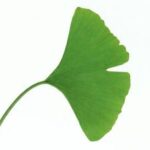 Cardiovascular events, of course, include heart attack, stroke or death due to diseased heart and blood vessels.
Cardiovascular events, of course, include heart attack, stroke or death due to diseased heart and blood vessels.
Researchers from the US looked for evidence of benefit from Ginkgo biloba.
First, the details.
- 3069 elderly adults were randomly assigned to a treatment group.
- 120 mg of G biloba EGb 761 twice daily
- Placebo
- EGb 761 is a standardized extract of dried G biloba leaves containing 24% ginkgo-flavonol glycosides, 6% terpene lactones (ginkgolides A, B, C, J), and bilobalide.
- The patients were followed for about 6 years.
And, the results.
- There were no differences in deaths between the G biloba and placebo groups.
- There were no differences in heart attacks, angina pectoris, or stroke.
- There were no differences in hemorrhagic strokes (due to bleeding in the brain).
The bottom line?
The authors concluded, “G biloba cannot be recommended for preventing cardiovascular disease.”
Healthy.net has summarized the laboratory and patient research of Ginkgo’s cardiovascular effects. The author concluded that it has a “wide range of profound and important therapeutic effects.”
Maybe, but at the doses of EGb 761 given to these elderly patients for the length of time studied in this report, there was no evidence of benefit as measured by the risk of death, heart attacks, angina, or stroke.
11/29/09 18:24 JR